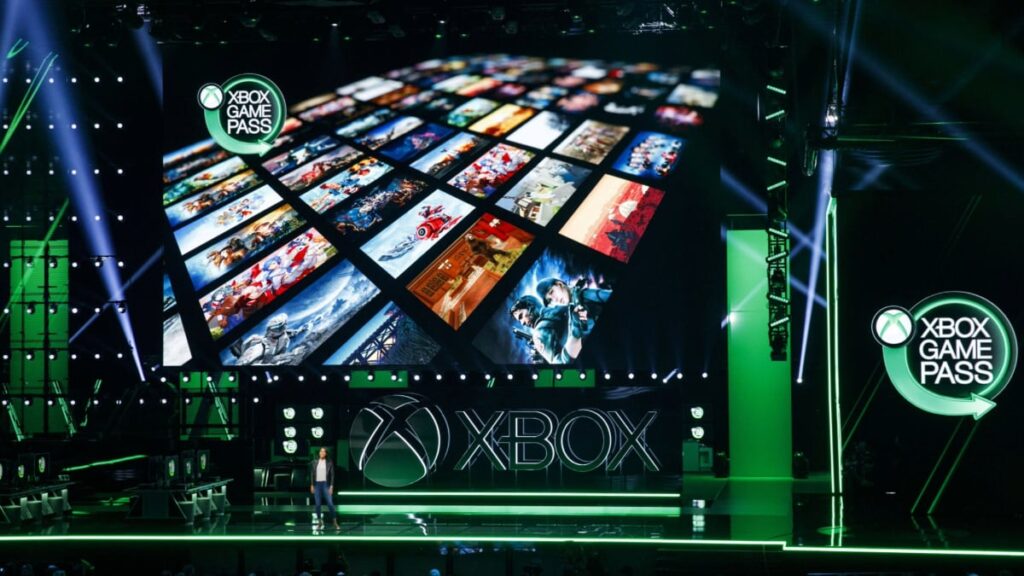The sudden closure of several video game studios in Microsoft’s Xbox division is the result of a wide-ranging cost-cutting initiative that has not yet been completed.
Xbox this week began offering severance agreements to manufacturers, quality testers and other employees of ZeniMax, which it acquired in 2020 for $7.5 billion (roughly Rs. 6,26,28 crore), according to people familiar with the company’s plans. Others in the Xbox organization have been told that more cuts are coming.
An Xbox representative declined to comment.
Employees were shocked by Tuesday’s surprise closure of three Xbox subsidiaries and the takeover of a fourth. The closures included Tokyo-based Tango Gameworks, which released the critically acclaimed action game Hi-Fi Rush last year. The people, who spoke on condition of anonymity, said Tango was planning a follow-up, discussing non-public information.
During a town hall with ZeniMax staff Wednesday morning, Xbox president Matt Booty praised Hi-Fi Rush but did not elaborate on why the company closed the development studio, according to three people present.
Speaking more broadly about the closings, Buti said the company’s studios were spread out too thinly — like “peanut butter on bread” — and that division executives felt understaffed. They decided to close those studios to free up resources elsewhere, he said.
Booty added that the closure of Arkane’s subsidiary Austin, the longtime developer of games like Prey, was unrelated to the performance of its new multiplayer game Redfall, which was a critical and commercial failure.
Before its closure, Arkane was looking to return to its roots with a new single-player “immersive simulation” game like a new installment in the Dishonored series, according to people familiar with the matter.
Jill Braff, studio head of ZeniMax, said at the town hall that she hopes the reorganization will allow the division, which also develops Fallout and Doom, to focus on fewer projects. “It’s difficult to support nine studios around the world with a modest central team with an ever-growing set of tasks,” she said, according to an audio recording of the meeting seen by Bloomberg.
“I think we were about to capsize,” she added.
Last year, both Tango and Arkane released games and wanted to hire additional staff when introducing new projects, which Booty and Braff believe was a major factor in their closure. Shinji Mikami, founder and head of the Tango studio, left last year.
These cuts at Xbox come amid a larger contraction in the video game industry due to economic changes after a period of rapid growth during the pandemic. Recently, Microsoft’s gaming division has expanded more than any of its competitors, thanks to the acquisition of ZeniMax and Activision Blizzard for more than $76 billion combined. In February, Microsoft cut 1,900 jobs, mostly at Activision Blizzard.
Activision Blizzard’s massive acquisition has tightened control over Microsoft’s Xbox division, according to people familiar with the matter.
In recent years, Xbox has invested heavily in Xbox Game Pass, a subscription service that offers unlimited access to hundreds of downloadable games for a monthly fee. To fill the service with new temptations, Xbox acquired dozens of studios, including companies known for creating smaller games, such as Double Fine from San Francisco.
While most game publishers are looking to make big swings with games that cost hundreds of millions of dollars, Xbox has promised to support smaller creative titles like Hi-Fi Rush with smaller budgets and lower expected sales. It didn’t matter if the game sold tens of millions of copies as long as it helped grow the Game Pass library.
But Game Pass hasn’t seen the massive growth that Xbox boss Phil Spencer might have hoped for.
Matt Piscatella, chief executive of analytics firm Circana, said monthly spending on non-mobile video game subscriptions in the U.S. “has been growing in the low single digits” since mid-2021.
“According to our data, Game Pass spending did have a period of significant growth in late 2019 to early 2021, and it has leveled off since then,” Piscatella said. “Purchasing games and additional content, as well as free-to-play models, is still the most popular way for U.S. consumers to access video games, at least for now.”
While there’s no indication that Xbox plans to abandon the Game Pass model, there are hints that its big bets haven’t paid off. Sales of Xbox content and services grew 62 percent during the most recent quarter, but as Niko Partners analyst Daniel Ahmad noted last month, the growth was entirely due to the acquisition of Activision Blizzard. He noted on social media that without sales from the deal, Xbox gaming revenue would have declined by about 5 percent for the year, “without growth in software and services and a sharp decline in hardware revenue.”
As console revenue has declined, the company has recently begun releasing some of its games on competing platforms. In an interview with gaming site Polygon in March, Spencer said that “the thing that worries me the most about the industry is the lack of growth.”
© 2024 Bloomberg LP


